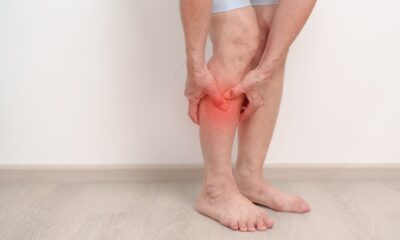Science
New Digital Cognitive Test Promises Accurate Alzheimer’s Diagnosis

Researchers at Lund University in Sweden have developed a new digital cognitive test designed to enhance the accuracy of diagnosing Alzheimer’s disease. This innovative tool measures the time it takes for patients to remember objects and make word associations, offering a more comprehensive assessment compared to traditional pen-and-paper tests.
The self-administered test serves as an initial step in the diagnostic process for Alzheimer’s. It prompts patients to recall ten random words, identify the current date, and recognize those same words among a selection of thirty. Additionally, patients are evaluated on their ability to process information quickly and their speed in selecting the correct answers on a digital screen.
Oskar Hansson, a professor of neurology at Lund University, emphasized the importance of this new approach. “Primary care does not have the resources, time, or specialist knowledge to investigate possible Alzheimer’s disease in the same way as specialized memory clinics. This is where a digital cognitive test can make the biggest difference,” he stated.
Alzheimer’s disease is the most prevalent form of dementia, leading to memory loss, difficulties with speech and language, and mood changes. Current diagnostic protocols typically involve blood tests to rule out other conditions, alongside memory and cognitive tasks. These tasks often require patients to perform activities such as drawing a clock or naming everyday objects.
The disease is associated with the accumulation of proteins known as amyloid and tau in the brain, which contribute to the death of brain cells and the onset of dementia symptoms. Unfortunately, blood tests that detect these proteins are not widely available in the NHS system.
According to doctoral student Pontus Tideman, the digital test offers an objective assessment at an earlier stage, providing greater precision in identifying cognitive impairment indicative of Alzheimer’s. “This indicates who should proceed with the blood test that measures the level of phosphorylated tau, which can detect Alzheimer’s pathology in the brain with high accuracy,” Tideman explained.
The researchers believe that this digital tool, validated through patient testing, could significantly streamline the diagnostic process, which is often challenging during a typical 15 to 20-minute consultation. “Combining the results of the digital test and the blood test increases the accuracy of diagnosing Alzheimer’s disease. The purpose of the test is to make things easier for primary care doctors,” noted Linda Karlsson, another doctoral student in the Clinical Memory Research group at Lund University.
Statistics from the Alzheimer’s Society indicate that approximately one million people in the UK currently have some form of dementia. Projections suggest that this number could rise to about 1.4 million by 2040. The development of this digital cognitive test could play a pivotal role in addressing the growing challenge of early and accurate diagnosis of Alzheimer’s disease, ultimately improving patient care and outcomes.
-

 World1 day ago
World1 day agoCoronation Street’s Shocking Murder Twist Reveals Family Secrets
-

 Entertainment4 months ago
Entertainment4 months agoKate Garraway Sells £2 Million Home Amid Financial Struggles
-

 Entertainment3 months ago
Entertainment3 months agoAnn Ming Reflects on ITV’s ‘I Fought the Law’ Drama
-

 Health3 months ago
Health3 months agoKatie Price Faces New Health Concerns After Cancer Symptoms Resurface
-

 Entertainment3 weeks ago
Entertainment3 weeks agoCoronation Street Fans React as Todd Faces Heartbreaking Choice
-

 World3 weeks ago
World3 weeks agoBailey Announces Heartbreaking Split from Rebecca After Reunion
-

 Entertainment3 months ago
Entertainment3 months agoCoronation Street’s Carl Webster Faces Trouble with New Affairs
-

 World5 days ago
World5 days agoKevin Sinfield Exceeds Fundraising Goal Ahead of Final Marathons
-

 Entertainment4 days ago
Entertainment4 days agoTwo Stars Evicted from I’m A Celebrity Just Days Before Finale
-

 Entertainment3 months ago
Entertainment3 months agoWhere is Tinder Swindler Simon Leviev? Latest Updates Revealed
-

 Entertainment4 months ago
Entertainment4 months agoMarkiplier Addresses AI Controversy During Livestream Response
-

 Science2 months ago
Science2 months agoBrian Cox Addresses Claims of Alien Probe in 3I/ATLAS Discovery





















